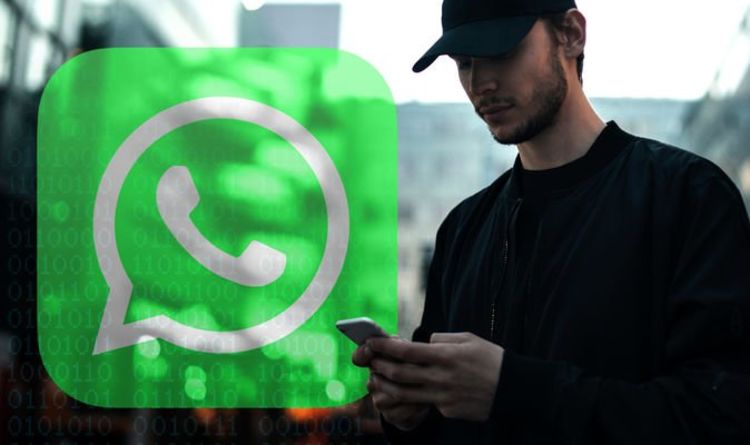How to Secure Your WhatsApp from Prying Eyes
Just a few hours ago, a friend sent you a WhatsApp message warning you that someone had unauthorized access to their messaging app. Thankfully, no private information was shared, so no material harm was done. But now, you’re concerned the same could happen to you. You’re frantically searching for a guide on how to protect yourself from this unexpected and unwelcome possibility.
Good news—you’ve found exactly what you’re looking for. In the following lines, I will provide a set of practical measures and useful tips to secure your WhatsApp account. Believe it or not, one doesn’t have to be a tech expert to snoop on WhatsApp. A moment’s distraction or a simple mistake can expose your conversations to unwanted eyes.
So, what are you waiting for? Grab a comfortable seat and read this guide attentively. By the end, you’ll know the most effective ways to secure your devices against snoops, spies, and prying eyes. Now, let’s get started.
Table of Contents
- Review Installed Apps
- Identify Spy Apps
- Check WhatsApp Web Sessions
- Enable Two-Factor Authentication on WhatsApp
- Disable Lock Screen Notifications
- Use a Secure Unlock Method
- Run an Antimalware Scan
- Use Secure Cloud Passwords
- Avoid Rooting and Jailbreaking
- Additional Helpful Tips
Review Installed Apps: Secure Your WhatsApp
The first step in securing your WhatsApp is scrutinizing the apps on your device. Some apps could send data about your smartphone activities, including your WhatsApp usage, without your knowledge.
Typically, apps designed to collect this kind of information are categorized as “parental control apps,” like Qustodio, Cerberus Screen Time, and Norton Family Parental Control. They’re not inherently harmful but can be misused to spy on you, especially if someone installs them on your device without your consent.
How to Check for High-Privilege Apps
If you’re an Android user, tap on the ‘Settings’ icon in your app drawer and navigate to Security > Device Administrators (or Other Settings > Privacy > Device Administration). Examine the list carefully, and if you spot any suspicious apps, deactivate and uninstall them immediately.
For iPhone users, head to Settings > General > Device Management and check for any profiles tied to suspicious apps. If you find any, uninstall the associated app and then delete the profile.
If the Device Management option isn’t present under General, you’re in the clear; no apps with special permissions are installed on your iPhone.
This guide aims to provide you with all the information you need to protect your WhatsApp account from prying eyes. Take these precautions seriously, and you can use WhatsApp with peace of mind.

Identifying Spy Apps on Your Device
If you’re concerned about the security of your WhatsApp conversations, it’s crucial to be aware of spy apps. These apps are specifically designed to secretly capture information, and they are most effective on devices that have been rooted (for Android) or jailbroken (for iPhone). Notable spy apps, such as iKeyMonitor for Android and iOS, can monitor your message frequency, capture screenshots, and even log keystrokes.
Spy apps can be especially deceptive as they often don’t show up in the list of installed or running apps, making them difficult to detect for the inexperienced eye. However, there are methods to uncover their presence.
How to Detect and Remove Spy Apps
First, open your device’s browser and go to addresses like localhost:4444 or localhost:8888. Many spy apps use these local addresses to hide their settings panel. If you find it, you can deactivate the app from there and proceed to uninstall it.
If that doesn’t work, try opening your phone’s dialer and entering the code *12345. This is another common method to access a hidden settings panel.
On a rooted Android device, launch SuperUser/SuperSU and check for apps that have obtained root permissions. If you find a suspicious app, immediately revoke its permissions and uninstall it using Android’s standard procedure.
If you have a jailbroken iPhone, open Cydia and check for suspicious apps, you find any, delete them right away.
Monitoring WhatsApp Web Sessions
WhatsApp Web allows you to use WhatsApp from your computer’s browser. Although convenient, this feature can be exploited for spying purposes, especially if the “Stay Connected” option is enabled.
Recently, WhatsApp has tried to address this by sending periodic notifications when a WhatsApp Web session is active. They’ve also introduced biometric authentication for added security. Nonetheless, these are not foolproof solutions.
How to Check for Suspicious WhatsApp Web Sessions
To check for unauthorized access, open WhatsApp, go to the chat list, click on the menu icon (⋮) for Android or “Settings” for iOS, and then select “WhatsApp Web” or “WhatsApp Web/Desktop”. You’ll see a list of all connected devices. If you notice any unfamiliar activity, disconnect from those sessions immediately.
Enabling Two-Factor Authentication on WhatsApp
The basic requirement for accessing WhatsApp is a phone number that can receive SMS. This means that if someone gains unauthorized access to your SIM card, they can potentially spy on your conversations.
To mitigate this, enable two-factor verification. To activate it, go to WhatsApp’s settings by clicking on the menu icon (⋮) for Android or “Settings” for iOS, and select “Two-Step Verification”. Follow the on-screen instructions to set up your personal PIN. Make sure to keep this PIN secure; you’ll need it to activate WhatsApp on a new device.
By following these steps, you can significantly enhance the security of your WhatsApp account.
Shield Your Privacy from Invasive Notifications
Someone can spy on your WhatsApp messages or SMS just by glancing at the notifications that pop up on your smartphone’s lock screen. Even worse, they could link your number to their device and gain full access to your chats. Don’t worry; turning off these lock screen notifications is straightforward. Here’s how to do it.
Disabling Notifications on Android: A Step-By-Step Guide
When it comes to Android, there’s no one-size-fits-all method to selectively disable notifications on the lock screen due to varying operating system versions. However, you can choose to turn off all notifications when the device is locked. To do this, go to “Settings,” click on “Sound and Notifications,” and then tap “When Device is Locked.” Choose the “Don’t show notifications at all” option.
If you’re using a Xiaomi device with MIUI, you can disable only SMS and WhatsApp notifications. Navigate to “Settings” > “Notifications & Status Bar” > “App Notifications.” Select “Messages” and turn off lock screen notifications. Repeat the same for WhatsApp.
iPhone Users: Hiding Message Previews
For iPhone users, the process is even more straightforward. Open “Settings,” go to “Notifications,” and then to “Messages.” Turn off the “Show on Lock Screen” option and set the preview display to “When Unlocked.” Do the same for WhatsApp.
Boost Security with a Reliable Unlocking Method
Now that your notifications are secure, it’s crucial to set up a secure unlocking method for your smartphone. Avoid easily guessable unlock patterns and opt for a complex PIN or password instead. Even better, use a biometric unlocking method like fingerprint recognition or facial recognition for optimal protection.
Tips on Creating Secure PINs and Passwords
For a PIN or password, steer clear of obvious combinations like your birth date or your partner’s name. Choose something that would be hard to guess for anyone who knows you.
Biometric Unlocking Systems: The Secure Choice
If you prefer, you can opt for a biometric unlocking method. On iPhones, you have the options of Touch ID or Face ID. On Android, the procedure varies but generally, you can find it under “Settings” > “Security” > “Screen Lock.”
Secure Your Computer as Well
Lastly, if you use WhatsApp Web on your computer, make sure you also set a secure unlocking method there, like a robust password or biometric recognition.
Useful Security Resources
For more information and insights on how to protect your privacy and data, check out my tutorials on how to choose a secure password and how to set a password on your PC or Mac.
By optimizing the security settings on your device, you’re taking significant steps to protect your privacy and data. Never underestimate the importance of these simple yet fundamental precautions.
Regular Antimalware Scans for Android and PC
If you’re using Android or a PC to access WhatsApp, running regular antimalware scans is a must. This step will shield you from hidden threats that could compromise your privacy. Plus, it keeps your favorite messaging app safeguarded from potential security loopholes.
For added protection, install an efficient antivirus and keep it up-to-date. Conduct scheduled or manual scans at regular intervals. If you’re unsure which antivirus to choose, check out our guides on the best antivirus solutions for Windows and Android.
Strong Passwords for Google Drive and iCloud
Protecting your WhatsApp account goes beyond the app itself; you also need to consider the security of your cloud spaces like Google Drive and iCloud. These services often automatically store backups of your WhatsApp conversations. That’s why using a robust password for these services is crucial. For further details on how to do so, consult our guides on changing Google and iCloud passwords.
Avoiding Root and Jailbreak for Device Security
Customizing your Android or iPhone through root or jailbreak might sound tempting, but it severely compromises your security. Both of these techniques expose you to significant risks, including vulnerability to spy software. If you’ve already rooted or jailbroken your device, it’s time to undo these modifications. Detailed instructions can be found in our guides on how to remove root and jailbreak.
Never Lend Devices to Strangers
Another tip that might seem obvious but often gets overlooked is to never lend your devices to unfamiliar people. Physical access to your phone or computer greatly facilitates any spying attempts, including WhatsApp monitoring.
Enhancing WhatsApp Privacy
To further enhance your privacy on WhatsApp, disable the online status and read receipts. These minor changes can make a big difference in protecting your privacy. For more information, check out our guides on how to disable online status and read receipts on WhatsApp.
In conclusion, by following these guidelines and precautions, you can significantly enhance the security of your WhatsApp and protect your sensitive data from prying eyes.


